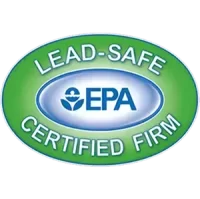Understanding Water Heater Replacement Needs in Melrose Park
Water heater replacement represents one of the most critical home maintenance decisions you’ll face as a homeowner in Melrose Park, IL. When your water heater begins showing signs of age or failure, the impact on your daily routine becomes immediately apparent. Cold showers, inconsistent water temperatures, and unusual noises from your utility room all signal that replacement time may be approaching. At Energy Services Air Conditioning and Heating Company, we recognize that water heater replacement requires careful consideration of multiple factors including your household’s hot water demands, available space, energy efficiency goals, and budget constraints.
The typical residential water heater in Melrose Park experiences significant stress due to our region’s hard water conditions and temperature fluctuations throughout the year. These environmental factors, combined with the natural aging process of water heater components, mean that most units require replacement every eight to twelve years. Regular maintenance can extend this lifespan, but eventually, every water heater reaches a point where replacement becomes more economical than continued repairs. Understanding when to replace rather than repair requires professional assessment of factors including tank integrity, heating element condition, thermostat functionality, and overall system efficiency.
Signs Your Water Heater Needs Replacement
Recognizing the warning signs of water heater failure can help you plan for replacement before experiencing a complete breakdown. One of the most obvious indicators is age, as water heaters approaching or exceeding ten years often operate far below their original efficiency levels. Rusty water flowing from hot water taps indicates internal tank corrosion, a problem that cannot be repaired and necessitates immediate replacement consideration. Similarly, visible rust or corrosion on the tank exterior, particularly around connection points and the pressure relief valve, suggests advanced deterioration that compromises system integrity.
Strange noises emanating from your water heater often indicate sediment accumulation at the tank bottom. While periodic flushing can address minor sediment issues, excessive buildup causes the tank bottom to overheat, weakening the metal and accelerating wear. Rumbling, popping, or banging sounds during heating cycles suggest this sediment has hardened, reducing efficiency and potentially causing tank failure. Water pooling around the heater base represents another critical warning sign, as even small leaks can quickly escalate into major flooding events that damage your home’s structure and belongings.
Water Heater Options for Melrose Park Homes
Modern water heater technology offers Melrose Park homeowners numerous options beyond traditional tank storage systems. Conventional storage tank water heaters remain popular due to their reliability, lower upfront costs, and straightforward installation process. These units store heated water in insulated tanks ranging from thirty to eighty gallons, providing immediate hot water access for multiple simultaneous uses. We’re proud to provide the best in HVAC and indoor air quality services to residential customers throughout Chicago and the surrounding communities, including expert guidance on selecting appropriately sized storage tank water heaters based on your household’s specific needs.
Tankless water heaters represent an increasingly popular alternative, heating water on demand rather than maintaining a stored supply. These compact units mount on walls, freeing valuable floor space while providing unlimited hot water for consecutive uses. Although tankless systems require higher initial investment, their superior energy efficiency often results in lower long-term operating costs. Heat pump water heaters offer another energy-efficient option, extracting heat from surrounding air to warm water while simultaneously providing basement dehumidification benefits particularly valuable during humid Melrose Park summers.
The Water Heater Replacement Process
Professional water heater replacement involves multiple steps ensuring safe, code-compliant installation that maximizes system performance and longevity. Initial assessment includes evaluating your existing system’s capacity, fuel type, venting requirements, and installation location to determine optimal replacement options. Whether you need to find the right HVAC system for a new home or want to have maintenance completed on your current system, you can count on us to provide comprehensive evaluation and recommendations tailored to your specific situation.
- Removal of existing unit: safely disconnecting gas, electrical, and water connections while properly draining and disposing of the old water heater
- Installation preparation: inspecting and updating supply lines, shut-off valves, and venting systems to meet current building codes
- New unit installation: precisely positioning and securing the replacement water heater while establishing proper connections and ensuring adequate combustion air supply
Following physical installation, our technicians perform comprehensive testing including checking for gas or water leaks, verifying proper venting operation, adjusting temperature settings, and confirming pressure relief valve functionality. We also provide detailed operational instruction, ensuring you understand your new system’s features, maintenance requirements, and warranty coverage.
Energy Efficiency Considerations
Energy efficiency significantly impacts both environmental footprint and operating costs throughout your water heater’s lifespan. Modern high-efficiency units incorporate advanced insulation materials, improved heat exchangers, and electronic ignition systems that substantially reduce energy consumption compared to older models. The Energy Factor rating system helps compare efficiency across different water heater types and models, with higher ratings indicating superior performance. Selecting an appropriately sized unit prevents energy waste from heating excessive water volumes while ensuring adequate supply during peak demand periods.
Melrose Park’s climate presents unique efficiency considerations, as water entering homes during winter months requires substantially more heating than summer supplies. This seasonal variation affects both energy consumption and recovery rates, making proper sizing crucial for maintaining comfortable hot water availability year-round. Additional efficiency improvements include installing heat traps on supply lines, adding supplemental tank insulation, and implementing timer controls that reduce standby heating during unused periods.
Maintenance for Extended Water Heater Life
Proper maintenance following water heater replacement maximizes system lifespan while maintaining peak efficiency and preventing unexpected failures. Annual professional inspections identify developing issues before they escalate into major problems requiring emergency service. These inspections include checking anode rod condition, testing temperature and pressure relief valves, examining venting systems for obstruction or deterioration, and flushing tanks to remove sediment accumulation.
Regular maintenance tasks homeowners can perform include monthly visual inspections for leaks or unusual conditions, quarterly temperature and pressure relief valve testing, and maintaining clear space around units for proper ventilation and service access. Documentation of maintenance activities, including professional service records, helps track system performance over time while potentially supporting warranty claims if issues arise. Understanding your water heater’s specific maintenance requirements based on manufacturer recommendations, local water conditions, and usage patterns ensures optimal performance throughout its service life while potentially extending operational lifespan beyond typical replacement intervals.







